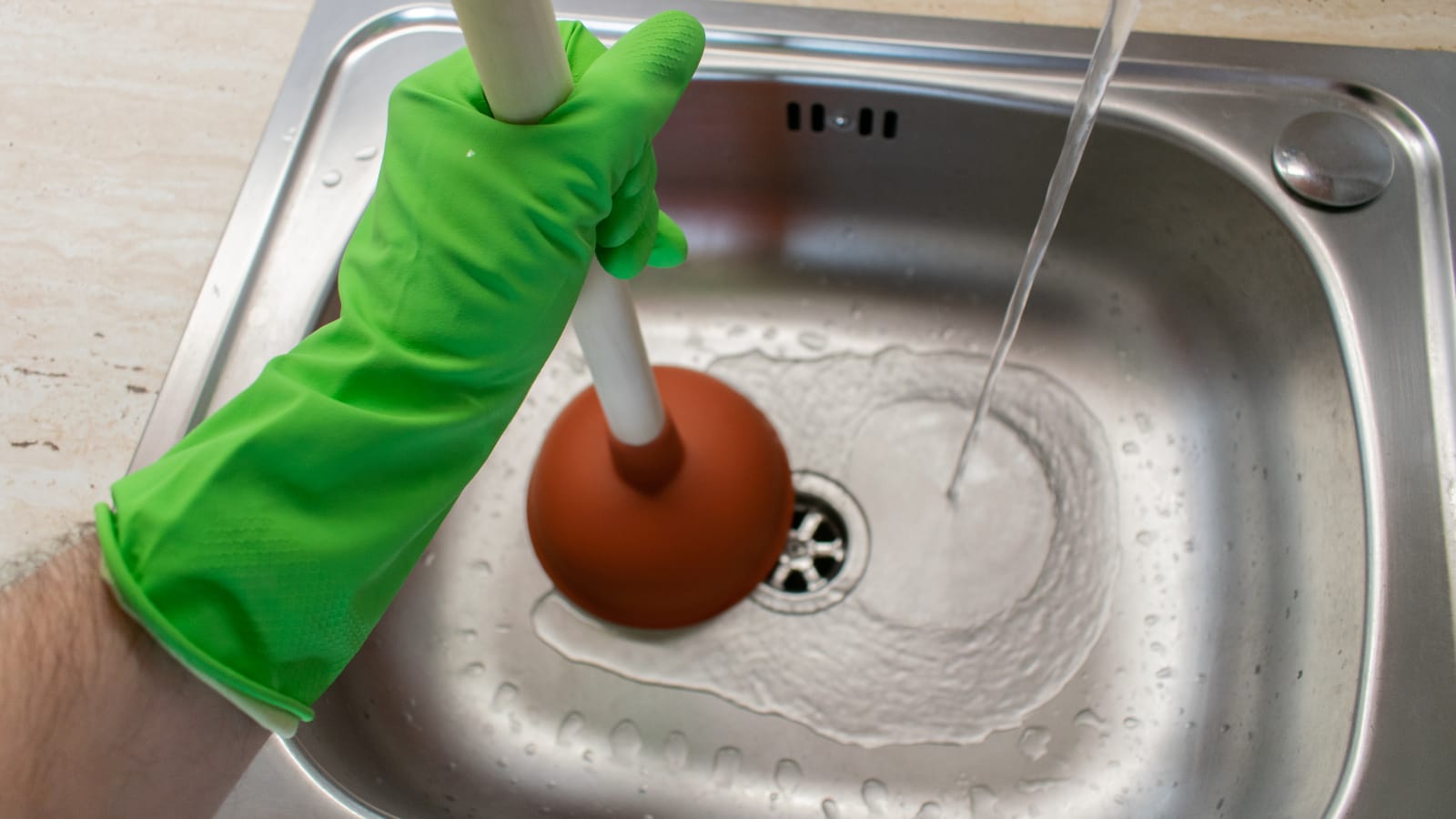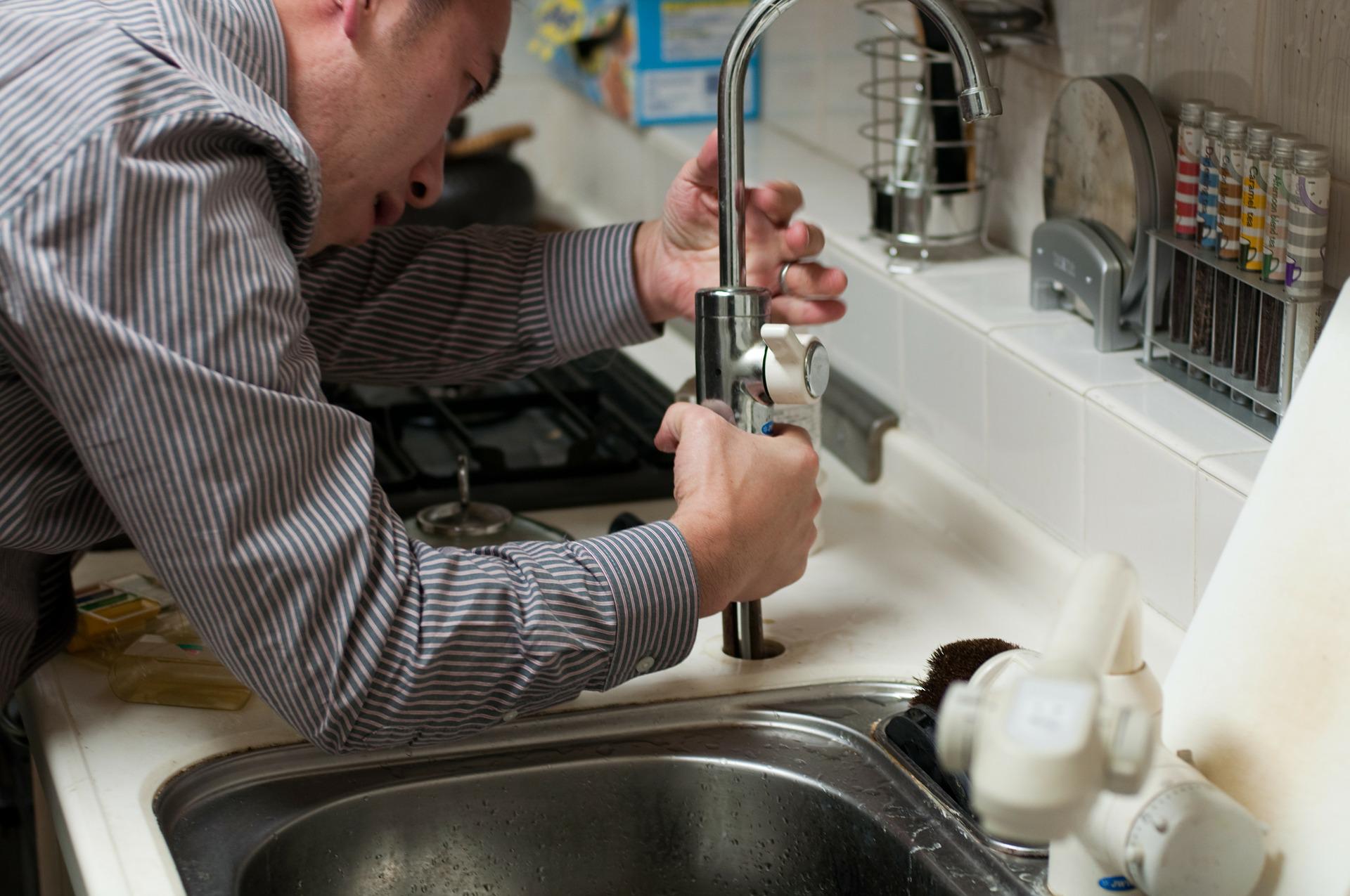They are making a number of great pointers related to 4 Tips to Fix a Slow Draining Sink overall in this content on the next paragraphs.

Intro
We've all been there: You're brushing your teeth or washing your hands, and you see the water pooling in the sink. As opposed to swiftly swirling down the tubes, it lingers, turning your once-refreshing early morning routine right into a miniature overload scene. A slow-draining sink isn't just bothersome; it's typically an indication of bigger plumbing issues prowling underneath the surface area. The bright side is that the majority of slow-draining sinks can be taken care of with a little expertise, a couple of fundamental tools, and some perseverance. All set to tackle this project head-on? Let's roll up our sleeves and dive right in.
Understanding the Causes of a Slow-Draining Sink
Prior to you begin poking around in your pipes, it assists to understand what could be causing the slowdown. Recognizing the root cause makes it simpler to select the ideal solution.
Tools and Products You'll Need
The right tools make all the distinction. The good news is, you won't need a completely equipped plumbing professional's van to do the job.
Step-by-Step Overview to Dealing With a Slow-Draining Sink
Currently, let's get into the nitty-gritty. This detailed procedure will certainly assist you with basic methods to restore your sink's drain.
Step 1: Remove and Tidy the Stopper
Often, the stopper (that tiny plug you lower to block water) is the first culprit. Remove it very carefully and wipe any hair or gunk entraped around its base. Rinse it thoroughly before placing it back in position.
Action 2: Use a Bettor to Dislodge Debris
Got that plunger all set? Placement it over the drain and provide it a couple of firm pumps. The concept is to create suction that can loosen up any type of blockage. If you see bits of particles floating up, you're on the ideal track.
Step 3: Try a Drainpipe Serpent or Cord Wall Mount
If the bettor does not suffice, it's time to bring out the drain snake. Gently feed it into the drain and spin as you go. You could really feel some resistance-- that's likely the obstruction. Keep twisting and pulling till you get rid of the blockage. If you do not have a drain serpent, a corrected the alignment of wire hanger can operate in a pinch.
Step 4: Apply a Do It Yourself Drainpipe Cleaner
An all-natural cleaner made from baking soft drink and vinegar can break down recurring grime. Put half a cup of cooking soda into the drainpipe, followed by half a mug of vinegar. Allow it fizz for around 15 minutes, after that flush with warm water. This chemical reaction usually does wonders for small clogs.
Tip 5: Reconstruct and Evaluate the Sink
Placed every little thing back with each other and run the tap. Does the water now swirl away at a decent rate? If yes, provide on your own a pat on the back. If not, do not despair-- there are still a few more tricks up your sleeve.
Crucial Devices for DIY Repair Works
A bettor is your go-to starting point. A tiny, sink-sized bettor produces suction that can displace small clogs. For even more persistent obstructions, a drainpipe snake (sometimes called a plumbing's auger) works wonders. A set of handwear covers, a flashlight, and perhaps a set of protective safety glasses are likewise handy.
Advised Cleansing Solutions
Light dish soap and hot water can aid break down greasy accumulation. A mixture of baking soda and vinegar is a reliable natural home remedy, and chemical cleaners supply an even more eco-friendly method. Keep chemical drainpipe cleansers as a last resort, as they can be extreme on your pipelines.
Common Perpetrators Behind Slow Drainage
So, what's blocking points up? Normally, it's a mixture of daily debris-- think hair, soap scum, tooth paste residue, and remaining food particles. In time, these little bits collect and cling to the pipe walls, slowly narrowing the passage and making it harder for water to go through. Sometimes, natural resource from tough water can additionally add to the crud, producing the best tornado for persistent obstructions.
When is it Time to Act?
If you discover the water draining slower than common, it's an excellent concept to interfere faster as opposed to later on. Waiting as well long might lead to complete obstructions, unpleasant odors, or perhaps pipeline damage. If the water takes more than a few secs to remove after shutting off the faucet, consider it a red flag and prepare yourself to place on your DIY hat.
Safety And Security First: Precautions and Preparations
Prior to you launch into unclogging setting, consider safety. You're managing possibly dirty water and particles, so slip on a set of handwear covers. If you're using chemical cleansers, guarantee the area is well-ventilated and follow the instructions on the label.
Safety Equipment and Work Area Arrangement
Lay down some old towels or dustcloths around the sink location to capture sprinkles. Eliminate any type of things that might get in your method, like soap dispensers or toothbrush owners. Make certain you have excellent illumination-- order a flashlight if required.
Different Techniques for Stubborn Clogs
Not all clogs are developed equivalent. If your sink still rejects to cooperate, take into consideration these different remedies.
Sodium Bicarbonate and Vinegar Technique
We already touched on this, however it deserves noting once more. This mild, environmentally friendly approach is much safer than chemical cleaners and often rather reliable.
Chemical Drainpipe Cleansers
Enzyme-based cleaners utilize natural germs to digest organic matter. They're an outstanding selection if you're looking to prevent severe chemicals. Simply bear in mind, they might take a bit longer to function their magic.
Chemical Drain Cleaning Company: Benefits And Drawbacks
Chemical cleansers can blast via challenging obstructions quickly, however they're not without disadvantages. They can produce heat and fumes, damage pipelines if utilized excessively, and posture environmental threats. Use them moderately, and always comply with the instructions very carefully.
Preventive Measures to Keep Your Sink Flowing
Avoidance is the very best treatment. By adopting a few basic behaviors, you can maintain your sink from reducing in the first place.
Regular Cleaning Practices
Wipe down the sink basin and fixture area routinely. Eliminate hair or food bits prior to they have an opportunity to wash down the drainpipe.
Preventing Unsafe Compounds Down the Drain
Hesitate before dumping coffee premises, oil, or coarse veggie scraps down the sink. These perpetrators cling to pipeline walls, creating clogs in time.
Regular Upkeep Checks
Set up a fast regular monthly examination. Run hot water with the sink for a few mins, focusing on the flow. If it appears sluggish, act fast prior to it ends up being a full-blown obstruction.
When to Call a Professional Plumbing Professional
Sometimes, despite just how hard you attempt, that obstruct simply will not budge. That's when it's time to generate the pros.
Indications That Show a Much More Serious Problem
If your sink drains gradually in spite of multiple efforts, or if you see water backing up in various other components (like your shower or bathroom), you might have a more major plumbing issue prowling much deeper in the system.
Balancing DIY Initiatives with Specialist Assistance
While DIY can conserve you money and provide a sense of achievement, there's no shame in calling a professional. An expert plumbing can examine your whole pipes arrangement, guaranteeing there's no underlying damages or long-lasting problem that might cost you extra in the future.
Contrasting Costs and Long-Term Solutions
Before choosing, think about the big picture. A low-cost, quick fix could address the issue momentarily, but buying a much more irreversible solution might save you cash and anxiety in the future.
Considering the Expenditures of Do It Yourself vs. Professional Repairs
DIY repairs often set you back bit more than the price of a bettor or a container of baking soda. Professional solutions, on the other hand, included a cost however may stop repeated concerns and expensive repair services later.
Purchasing Quality Fixtures and Upgrades
If your sink's style contributes to frequent clogs, it might be worth upgrading to higher-quality fixtures or modifying the plumbing layout. Consider this an investment in your house's capability and convenience.
Conclusion
A slow-draining sink can seem like a minor inflammation, but it's frequently an indicator that your plumbing needs a little tender loving care. By understanding the origin, using the right devices and techniques, and committing to simple preventive measures, you can keep your sink streaming openly. And when all else stops working, never be reluctant to call in a specialist-- your home's plumbing deserves the investment in care and upkeep.
Three Common Ways to Fix a Slow Drain
Baking Soda Method
Boil a full pot of water. Measure out cup of baking soda and pour it down the drain. Then take cup of the magical cleansing substance known as white vinegar and drop that down there too. Allow the mixture to fizz in the drain for five minutes as the vinegar and baking soda combine. Now dump in that whole pot of boiling water. This combination of cleaning substances should clear out anything that is causing your sink to drain slowly. If it doesn t...
Zip-It
If the baking soda method doesn t clear out your drain, it may be because a significant amount of hair and/or other debris has collected there and you need to remove it. Purchase a Zip-It tool at any home improvement or hardware store and insert it into your drain. It will catch any collected hair or debris that s blocking the flow of water. Pull it out. If it s got a big clump of hair, etc. on the end, you ve probably got your culprit.
Drain Cleaner
If these methods don t work, there is the standard drain cleaner that you can also buy in a hardware store or even your local grocery store. It s better if you can use a household solution, but these drain cleaners often work in a pinch. They re very simple to use. You generally just dump them in your drain and wait. If even this method is not effective, it may be time to call the plumber.
https://www.mrrooter.com/oneida/about-us/blog/2017/july/three-common-ways-to-fix-a-slow-drain/

We were made aware of that article on 7 Ways To Fix A Slow-Draining Sink Before You Call A Plumber through an associate on another web page. Enjoyed our content? Please share it. Let others check it out. Thanks for taking the time to read it.
Call Today
Comments on “Effective Tips For Repairing A Slow-Draining Sink”